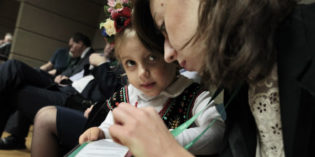Tag: hanna wass

Have we all underestimated the severity of socioeconomic differences in electoral participation?
Opinion polls routinely overestimate voter turnout, since participants misreport their own voting record, and because politically engaged voters are also more likely to respond to surveys. Using unique linked survey and register-based data from Finland that allows them to measure the effects of these biases, Hannu Lahtinen, Pekka Martikainen, Mikko Mattila, Hanna Wass, and Lauri Rapeli demonstrate that these two factors also lead to an underestimation of socioeconomic differences in turnout. The results imply that social inequality in political participation is a greater social challenge than previously thought.

Do electoral results come as a surprise because our empirical models are limited?
Recent elections in many European countries have seemed less predictable, as party systems fragment and new parties challenge the established ones on a range of issues. Looking at the recent case of Finland, Zhen Im, Hanna Wass, Heikki Hiilamo and Timo Kauppinen argue that political scientists need to develop new models for mapping multiple, changing issues for electoral competition.

If your parents didn’t vote, chances are you won’t either – unless you move up the social ladder
You are less likely to vote if your parents didn’t go to the polls. But new research by Hannu Lahtinen, Heikki Hiilamo and Hanna Wass suggest this effect is at least partly overcome if you move up the social ladder yourself. The more social mobility a society can achieve, the smaller the gaps in turnout between […]

The empathy gap: understanding why some people don’t vote
Not everyone votes. Using data from the 2015 Finnish National Election Study, Kimmo Grönlund and Hanna Wass look at what factors make a person less likely to go to the polls or get involved in politics. They warn against assuming non-voting is a matter of personal choice and suggest ways to overcome the ‘solidarity deficit’ that emerges […]

Electoral turnout for young people peaks immediately after their enfranchisement, then falls sharply
It is established that young people tend to vote less than older generations, particularly in Britain. However, less well understood are the differences in turnout among young people. Based on elections in Finland and Denmark, Yosef Bhatti, Kasper M Hansen, and Hanna Wass have shown that turnout is highest when young people can vote immediately after being […]




 Democratic Audit's core funding is provided by the Joseph Rowntree Charitable Trust. Additional funding is provided by the London School of Economics.
Democratic Audit's core funding is provided by the Joseph Rowntree Charitable Trust. Additional funding is provided by the London School of Economics.